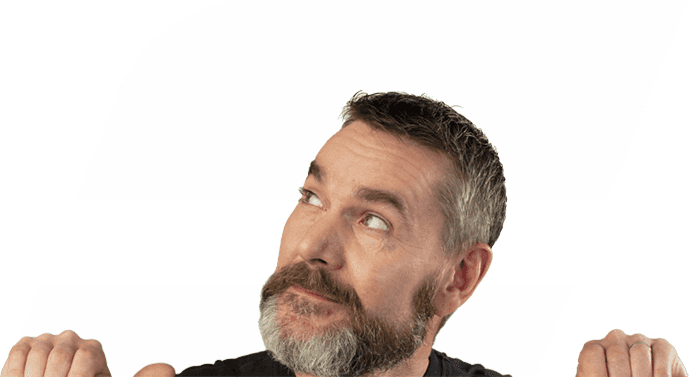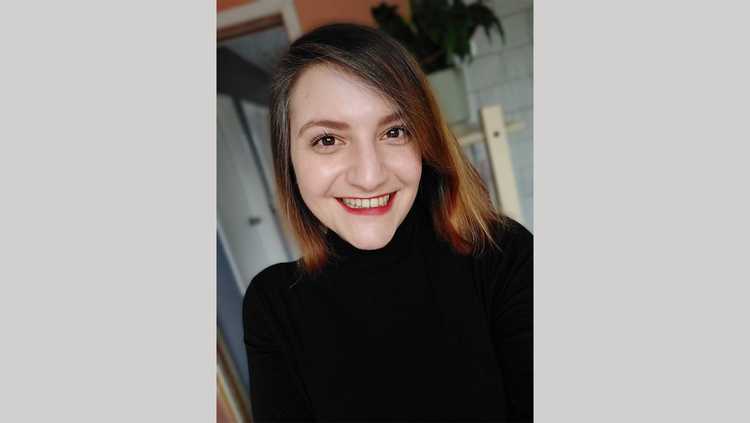The Auto Trader Sustainability Network is made up of different people from across the business. Each of them is on a different sustainability journey of their own, and this series of articles gives you the chance to hear their unique story. Meet Sien Figoureux.
When did you first become aware of the need to be more sustainable?
From a young age, I was taught to appreciate what I have and look after my things well. We weren't particularly well off, but I have fond memories of visiting flea markets and garage sales with my family. My granddad's garage was (and still is) a treasure trove of things that other people had thrown out, but he saw value in repairing, turning into something new or giving to the grandkids to play with. I've never really understood why so many things are thrown away that are still perfectly usable. It probably wasn't until high school, when we watched An Inconvenient Truth, that I started to link things to the environment and sustainability 🌍 Seeing what we were doing to our planet caused some cracks in my worldview then.
What interests you about sustainability?
I find it fascinating how the climate crisis is the biggest challenge that humanity faces, and it's still solvable when you think of the other incredible feats we've achieved to this day, but so many things are getting in the way of solutions. Not to sound too political here—we definitely need governments and big corporations behind us—but we all have a part to play. Our voices and actions matter, and honestly, it's fascinating to think of all the innovative ideas popping up and ways we can all make a difference.
What was one of the first changes you made on your journey to be more sustainable?
In my mid-teens, I became vegetarian, which wasn't a conscious environmental statement, but it is now that I've learnt much more about the carbon footprint of food and, in particular, animal products. Back then, it was much harder as vegetarian options were limited when you'd go out to eat, and supermarkets hardly stocked any meat alternatives. These days though, we're spoilt for choice, making cooking and eating out so much more exciting.
What change has been the easiest?
Not the most original answer, but switching energy providers was straightforward. I'd had it with my provider about three years ago and started looking into renewable energy. We settled on Bulb and haven't had any issues since. We get 100% renewable electricity and 100% carbon-neutral gas (no heat pump yet, sadly!), and we have a smart meter to keep tabs on our spending and pay less monthly than before.
We've planted almost 700 trees and offset over 31 tonnes of CO2, for only about a tenner a month. I know offsetting isn't the solution to it all, but it's a nice thing to do to complement any lifestyle changes you've already made. Also, signing up for a service like Ecologi took no effort at all 🌳 I signed up just over two years ago and have recently moved to a family plan to cover my fiancé and our two cats.
What change has been the hardest?
Obviously, it hasn't been a problem during lockdowns, but reducing the number of flights I take is difficult. I moved here from Belgium and usually visit my family twice a year; flying is still the most convenient and cheapest way ( ironically). A train ticket to London (not including the Eurostar needed to get to Brussels) often costs the same or more than a direct flight from Manchester, which is mind-boggling. I have promised myself to look into it again properly in the new year, which will probably result in sucking it up and paying more to go by train… But being able to pat myself on the back for choosing the more planet-friendly option and probably being less stressed from not having to go to an airport. Not quite sure the same can be done to satiate my obsession with visiting Japan, though… 😅
What future changes would you like to make/are working towards?
One of the things I'm focusing on is moving away from fast fashion. I went through a ridiculous phase of buying too many cheap clothes while at Uni and then not wearing them. A few years ago, I sold and donated half of my wardrobe, and honestly, it felt like such a relief. Like many people, though, I like clothes and how they can be used as a form of self-expression. I'm making a conscious effort only to buy things I know I will wear for a long time, to shop secondhand where possible, and if I need to buy new, buy from shops with sound ethical and eco-credentials that use recycled or more sustainable materials. It's a steep learning curve, but the joy I get from finding something unique at a thrift shop beats buying what everyone else is wearing.
Can you recommend some simple changes that others can make?
I'd like to say: don't get overwhelmed. When you're just starting your sustainability journey, it can feel like there's too much that you could change. Be realistic and take it one step at a time. Introducing a meat-free day or two a week is a sensible thing to try out for some people. Maybe you could look into some eco-friendlier cleaning products. It could be setting yourself a challenge to buy nothing new for a month. Yes, there are many things out there to try and improve on, but you know your lifestyle best and what kind of things are most achievable at the moment. The next one won't feel daunting once you've taken your first step.
Can you recommend any resources to help people understand their impact / start their sustainability journey?
I found using a carbon footprint calculator helpful to figure out which areas of my life I could make the most significant changes. Documentaries are also an excellent way to dip your toes in and learn a bit about our day-to-day lives' impact on the planet. It is about sitting down and thinking about your current lifestyle, but I like to find inspiration from people who blog about their sustainability learnings.


